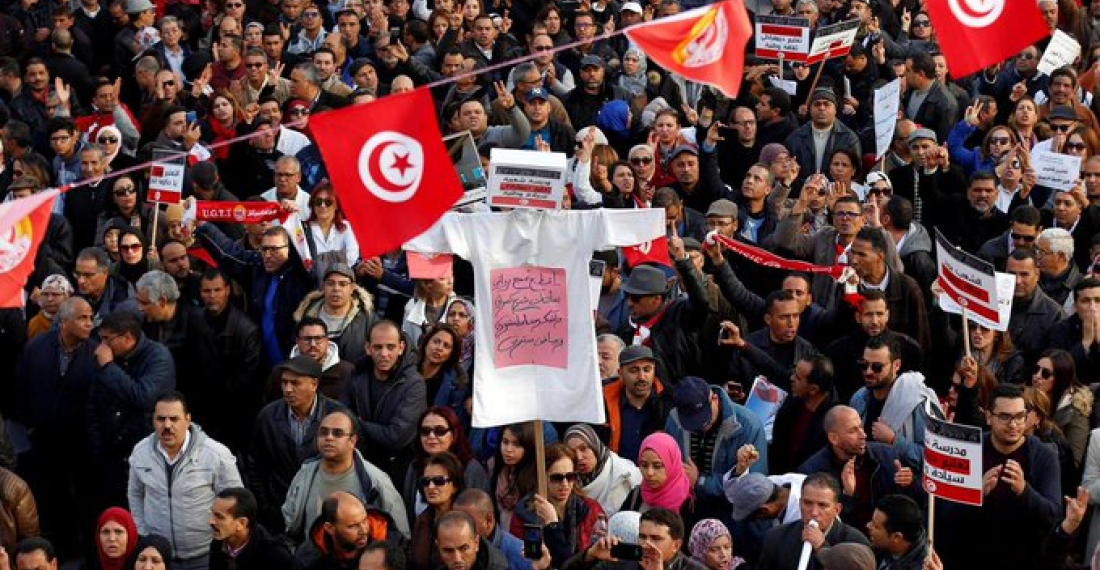Rivalry between the national institutions in Tunisia threatens the basis of this rare but fragile democratic state in North Africa. Some parties have called for street protests in support of one side or the other.
Things are coming to a head after President Qais Saeed refused to swear in new ministers after a Cabinet reshuffle initiated by the prime minister. He has also expressed reservations about all political dialogue initiatives to solve the crisis presented by national organisations and parties.
The Islamist Ennahda party mobilised its supporters to take to the streets and participate in a march scheduled for Saturday.
Ennahda says the march aims to protect legitimacy and the democratic experience. The head of the Ennahda Movement, Rashid Ghannouchi, who is also the Speaker of the Tunisian parliament, stressed, in a blog post on his Facebook page, the movement’s determination to go to the street, saying, “Freedom to demonstrate is guaranteed to all Tunisians."
Parties supporting the government accuse President Qais Saeed of breaching the constitution and attempting to usurp the powers of the prime minister and and of parliament.
Ghannouchi's advisor, Mohammed Sami Al-Tariki, indicated that the time has come for Tunisians to hear another voice from within the political arena, calling for an end to tampering with the state's sovereign institutions and stressing that the street is not limited to a specific political trend.
Civil society and left-wing parties continued to organise protest vigils in the heart of the capital, during which they raised slogans against the Ennahda movement and its president, demanding the dissolution of parliament and calling for a referendum on the constitution and the political system.
Ennahda movement is particularly disturbed by calls to dissolve the parliament. Calls to dissolve the parliament have been uncommon in Tunisia modern history.
Meanwhile, other political parties have refused the call of Ennahda. The Dignity coalition justified its position with what it considered "the coup of Ennahda against its consensus and the disappearance of the original purpose of the demonstration." Heart of Tunisia also indicated that the option to go to a street in this epidemiological circumstance in which the country is living is not a correct decision.
On the other hand, the head of the Free Constitutional Party, Abeer Moussa, also called to carry out a series of protest movements, suggesting that its battle with Ennahda has shifted from the arena of parliament to the street.
Parties who accepted or rejected the call to join street protests represent different ideologies and constituencies. The parties this time are not necessarily playing along ideological lines bur rather the institutional divisions that threaten one of the region's few democracies.
Source: commonspace.eu with Al Jazeera (Doha).
Picture: Protests in Tunisia. (Source: Africa Freedom Network).







